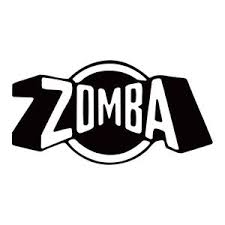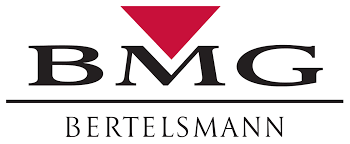It’s easy to learn online that before Clive Calder owned a record label he was a bass player. What I want to know is…..was he a GOOD bass player? Did he spend hours practicing his scales? Was he courted by lots of bands? It matters.
It matters because my music friends and I talk about money far more than we talk about music (embarrassing, but true). And we need to know it’s possible for a man to spend hours practicing his instrument, dedicate his life to the creation of good music, and eventually get handed a check for $2.7 billion (with a “b”). I’m going to believe Clive was a good bass player.
If you lived in South Africa in 1971, there was a time lag from when a song become a hit in the US/UK and the time you could go the store and buy the record.
To capitalize on this time lag, 25-year old Clive Calder, session bass player and entrepreneur, recruited the help of a local producer to record new versions of those hit songs and quickly release them in record stores. The session musician’s name was Mutt Lange. And the practice of deconstructing – then reconstructing – hit songs on a regular  basis empowered both of them for a lifetime of making hits (Mutt Lange produced every song you’ve ever loved by AC/DC, Def Leppard, Shania Twain, Nickelback and Bryan Adams).
basis empowered both of them for a lifetime of making hits (Mutt Lange produced every song you’ve ever loved by AC/DC, Def Leppard, Shania Twain, Nickelback and Bryan Adams).
Fast forward to 1991. Germany-based record distribution giant BMG decides it’s time to acquire some record labels to ensure they always have content. By that point, Calder – now based on New York – was now the well-known, hands-on A&R brains behind Flock of Seagulls, R. Kelly and others. He liked being in the details. He rarely worked with rock acts for the simple reason that they usually wrote their own songs.
Michael Dornemann, then CEO of BMG Entertainment, didn’t think Clive would ever cash-out and stop producing music. “It’s outside my imagination,” he said.
But Calder DID allow BMG to acquire a 25% stake in his company (now re-named Zomba Records), primarily because he knew the value of good distribution (this was long before iTunes). Part of the arrangement was a “put” option; designed to put BMG at the front of the line if Clive ever decided to sell. The “put” option stated that at any point before 2002 – at Clive’s choosing – BMG would have to buy Zomba for three times the previous year’s revenue.
Great musicians have exquisite “time”. Their perception of the vast space that exists between beats one and two of a measure – and how different a groove can feel based on where they place the note – is exquisite. Clive’s sense of time told him the ideal time to sell Zomba Records was AFTER he signed the Backstreet Boys, Britney Spears and N’ Sync (1999 revenue = $900 million)…but BEFORE Napster decimated the music industry in 2001. Now that’s rhythm.
In 2000, Clive Calder exercised the “put” option in his contract with BMG, which forced them to pay him a record  $2.7 billion. The largest amount of money ever paid to an individual in the music industry. Calder now resides in the Cayman Islands.
$2.7 billion. The largest amount of money ever paid to an individual in the music industry. Calder now resides in the Cayman Islands.
The irony? Clive didn’t sign the Backstreet Boys because he liked their music (he didn’t). He signed them because it was the only music BMG would happily distribute in Europe. They hated his urban/hip-hop artists.
“I never wanted to be David Geffen or Richard Branson,” Clive said. “I wanted to be Donny Hathaway (hands-on, soul-influenced songwriter/producer for Roberta Flack & Curtis Mayfield).”
Well Clive, if you’re interested in doing it all over again – just for the love of music; let me know. The next time you’re passing through Atlanta you can sit in with my band….and teach my friends and me a thing or two about rhythm.
http://rebloggy.com/post/clive-calder-and-keith-calder/48216101359
https://en.wikipedia.org/wiki/Donny_Hathaway
“The Song Machine” by John Seabrook (2015)
_________________________________________________________
Mike Bielenberg is a professional musician and co-founder of http://www.musicrevolution.com, a production music marketplace with over 40,000 tracks online where media producers, video producers, filmmakers, game developers, businesses and other music buyers can license high-quality, affordable royalty-free music from an online community of musicians. mbielenberg@musicrevolution.com. ![]()